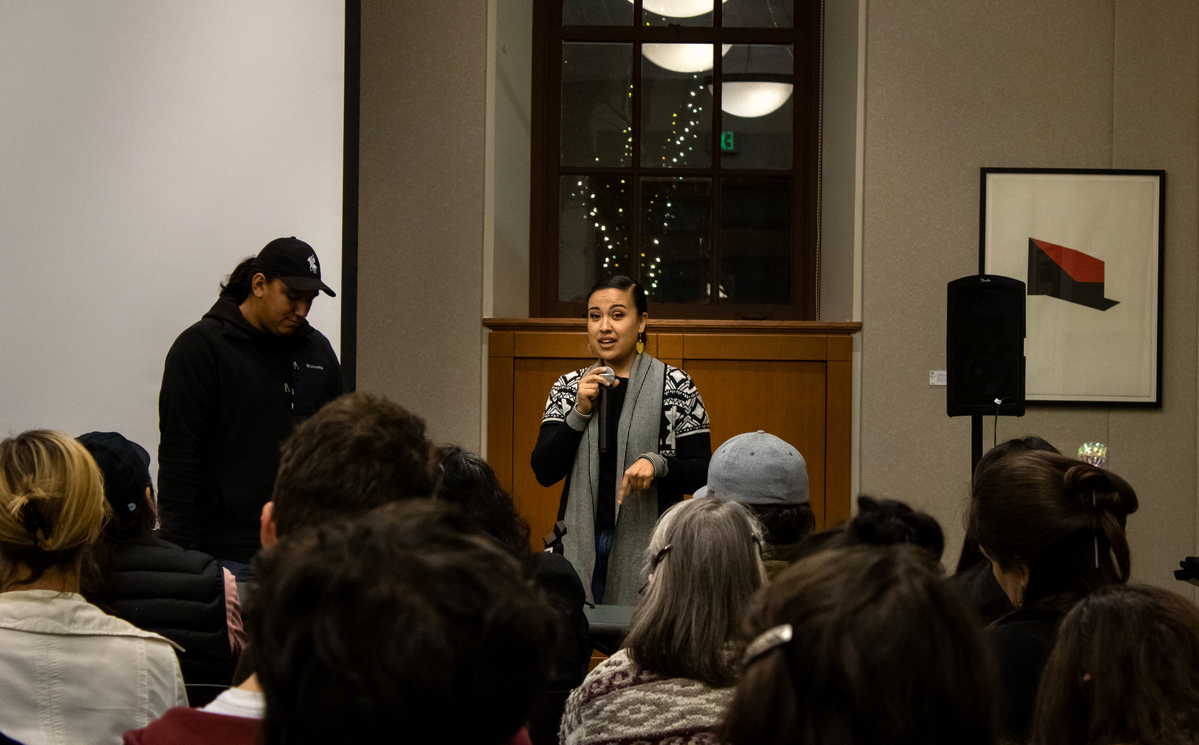On Jan. 15, at Multnomah County Central Library, an open discussion was hosted by the Indigenous 20-Something Project—“a movement [bringing] healing and wellness to an entire generation to stop the toxic impacts of intergenerational trauma.”
Hosts and founding members of I20SP, Shalene Joseph and Josh Cocker, discussed different factors affecting indigenous communities and the power that historical wisdom has had in their efforts to foster hope, resilience and lasting community connections.
Currently based in Gresham, I20SP, a project created by members of the Native Wellness Institute, began as just a group of young people talking.
“There was a youth camp put on by the NWI called the wellness warrior camp,” Cocker said. “There were 17 of us 20-somethings to help out and after the camp was finished we all gathered in their longhouse—a meeting place—then had a fire and a conversation facilitated by my sisters. We were asked ‘what does healing mean to you’ and ‘how do you bring it to your generation?’”
“We all had a lot to say and it was all abundance based,” Joseph said when asked about the group’s start. “We didn’t want to just leave the conversation there, so we started this group and movement with the common theme of healing our generation.”
A product of this conversation—and the group’s mission—is to end the negative effects of historical and intergenerational trauma: when traumatic events that affected past generations still affects the current generation and its ability to heal.
Cocker mentioned “boarding schools” as an example of this. These were places created during the late 1800s into the early 1900s in the United States with the goal of removing Native American children’s traditional customs in favor of those adopted by the U.S. government.
“When those individuals came home there was change,” Cocker said. “When you grow up away from your people, you come home a stranger. There are people in my grandmother’s generation who left the [reservation] altogether and stopped talking to our people. That was one kind of trauma introduced to my people, and the way it has carried on is those families that ended up leaving never came back.”
In an effort to begin healing these wounds, members of I20SP bring their specialized skills to the communities they visit, which ranges from academia to survival skills.
“[We’re] going into a community and working with youth and occasionally adults and doing a lot of trauma-informed care,” Joseph said. “For me, it’s changing the narrative. Coming from that lens my process was writing a parallel to historical intergenerational trauma with that wisdom and knowing we’re an abundance-based people.”
“My thing is being outside and teaching different skills,” Cocker said. “The idea of trapping and tracking and how those things teach us. There’s this idea of being triggered, but when you build a trap and you see what an actual trigger is, you realize the most dangerous part of a trap is the bait. You can start to break down what baits you into terrible situations and how you avoid those things.”
Alongside the discussion, Joseph presented a short film titled Tekona. The film, with an all-indigenous cast and production team, is based on a poem written by a member of the production team during the passing of a family member. The film focuses on Native American men.
“When we do see Native people in media, it’s largely deficit based,” Joseph said. “We wanted to be able to take the time to show a sensitive side and a side that’s moving through a difficult journey.”
